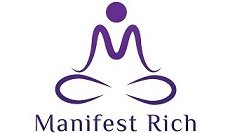Affirmations in MI are powerful tools that can positively impact our lives by recognizing our strengths and empowering us to make positive changes. In Motivational Interviewing (MI), affirmations are statements and gestures that acknowledge client strengths and behaviors that lead towards positive change. These affirmations are designed to build confidence in one’s ability to change and must be genuine and congruent to be effective.
In MI, open questions, affirmations, reflective listening, and summary reflections (OARS) are the basic techniques used to communicate and engage with individuals. Open questions invite others to share their story in their own words, while affirmations express appreciation and validation for clients’ willingness and efforts. Reflective listening involves actively listening and reflecting back the speaker’s thoughts and feelings, while summaries provide a concise recap of the conversation and can be used at transition points.
Affirmations in MI are not mere compliments, but rather a way of recognizing inner strength, building rapport, and encouraging positive choices. These empowering statements can be tailored to different contexts, such as education, healthcare, or criminal justice, making them versatile and applicable in various settings.
- Affirmations in MI recognize client strengths and behaviors that lead to positive change.
- Open questions, affirmations, reflective listening, and summary reflections are fundamental techniques used in MI.
- Affirmations are not mere compliments, but powerful tools that empower individuals.
- Affirmations can be tailored to different contexts, such as education, healthcare, or criminal justice.
- Effective affirmations are specific, meaningful, and sincere.
Understanding the Basics: Open Questions, Affirmations, Reflective Listening, and Summary Reflections in MI
To truly grasp the essence of affirmations in MI, it is essential to understand the fundamental techniques that form the backbone of this approach, such as open questions, affirmations, reflective listening, and summary reflections. These techniques, often referred to as OARS, are the building blocks of effective communication and engagement in Motivational Interviewing.
Open questions play a crucial role in MI, as they invite individuals to share their personal stories, thoughts, and feelings in their own words. By using open-ended prompts like “Tell me more” or “How do you see it?”, we create an environment that encourages exploration and self-reflection. This encourages deep conversation and enables clients to articulate their desires and goals.
Affirmations, another key tool in MI, express appreciation and validation for clients’ willingness and efforts towards positive change. By acknowledging their strengths and recognizing their progress, we help build confidence and motivation. Affirmations should always be genuine and congruent, ensuring they resonate with the individual and reinforce their self-belief.
Reflective listening involves actively listening to the speaker and then reflecting back their thoughts and emotions. This technique helps to deepen understanding, validate the person’s experiences, and foster empathy. By paraphrasing, summarizing, and clarifying what they have shared, we demonstrate our attentiveness and create a safe space for them to explore their thoughts and feelings further.

Summary reflections are concise recaps of the conversation and serve as transition points in the MI process. They help to tie together various aspects of the discussion and highlight key themes or insights. By summarizing what has been shared and confirming our understanding, we show respect for the person’s experience and maintain the momentum of the conversation.
By utilizing open questions, affirmations, reflective listening, and summary reflections, we create a supportive and empowering environment in Motivational Interviewing. These techniques establish rapport, foster trust, and encourage individuals to explore their own motivations and aspirations for change. When used in conjunction with affirmations, these techniques have the potential to unleash personal growth, promote mindfulness, and facilitate positive transformation.
| Technique | Purpose |
|---|---|
| Open Questions | Invite individuals to share their stories and explore their desires and goals. |
| Affirmations | Recognize strengths, validate efforts, and build confidence in one’s ability to change. |
| Reflective Listening | Reflect back thoughts and emotions to deepen understanding and foster empathy. |
| Summary Reflections | Provide concise recaps of the conversation to highlight key themes and maintain momentum. |
The Power of Affirmations: Recognizing Inner Strength and Building Rapport
Affirmations serve as a powerful tool for self-care and personal growth, allowing individuals to recognize their inner strengths and build a positive mindset that can transform their lives. In the context of Motivational Interviewing (MI), affirmations play a crucial role in fostering meaningful conversations and establishing rapport with clients.
By using affirmations, we can acknowledge and validate the efforts and progress made by individuals, enhancing their confidence and motivation to make positive choices. Affirmations in MI are not empty compliments; they are genuine and congruent statements that recognize client strengths and behaviors that lead towards positive change.
When crafting affirmations, it is important to be specific, meaningful, and sincere. Tailoring affirmations to the individual’s unique situation and context can enhance their effectiveness. By incorporating affirmations into our conversations, whether we are educators, healthcare professionals, or criminal justice practitioners, we can create an environment that promotes self-care and personal growth.
Furthermore, affirmations can also be incorporated into our daily routines as a mindfulness practice. By repeating affirmations that align with our personal values and goals, we can develop a positive mindset, cultivate self-compassion, and enhance our overall well-being. As we internalize these affirmations, we reinforce our belief in our own potential and ability to create positive change.
Using Affirmations for Self-Care in MI
When it comes to self-care, affirmations can play a significant role. By consciously recognizing and affirming our inner strengths, we can build resilience and nurture a positive self-image. Affirmations act as reminders of our capabilities and help us maintain a hopeful and optimistic perspective on life.
In conclusion, affirmations in MI are not mere words; they are tools for recognizing inner strengths, building rapport, and fostering personal growth. By embracing affirmations and incorporating them into our daily routines, we can cultivate a positive mindset and empower ourselves to overcome challenges and achieve our goals.
| Affirmations in MI | Benefits |
|---|---|
| Recognize inner strengths | Builds resilience |
| Establish rapport | Fosters trust |
| Promote self-care | Nurtures positive self-image |
| Encourage positive choices | Enhances motivation |
Affirmations serve as a reminder of our capabilities and help us maintain a hopeful and optimistic perspective on life.
After summarizing all, we can see that affirmations in MI are a valuable tool for recognizing inner strengths, building rapport, and fostering personal growth. By incorporating affirmations into our conversations and daily routines, we can empower ourselves and others to create positive change, enhance well-being, and cultivate a positive mindset that can transform lives.

Tailoring Affirmations to Different Contexts: Education, Healthcare, and Criminal Justice
Affirmations in MI can be tailored to various settings, including educational environments, healthcare settings, and even within the criminal justice system, highlighting their adaptability and impact on individuals’ lives. Whether it’s a student struggling with self-confidence, a patient navigating a healthcare journey, or an individual seeking support within the criminal justice system, affirmations can play a significant role in fostering positive change and personal growth.
In educational settings, affirmations can be used to encourage students, recognize their efforts, and cultivate a growth mindset. By acknowledging their strengths and efforts, affirmations empower students, boost their self-esteem, and create an environment conducive to learning and personal development.
Within healthcare settings, affirmations can have a profound impact on patients’ well-being and healing process. By validating their experiences, expressing empathy, and recognizing their resilience, healthcare providers can build trust and rapport with patients, leading to better outcomes and patient satisfaction.
| Education | Healthcare | Criminal Justice |
|---|---|---|
| Encouraging students | Validating patients’ experiences | Recognizing efforts towards rehabilitation |
| Boosting self-confidence | Expressing empathy | Promoting positive choices |
| Cultivating a growth mindset | Building trust and rapport | Supporting reintegration into society |
Affirmations in MI not only recognize and reinforce inner strengths but also help individuals overcome challenges and make positive choices. Tailoring affirmations to different contexts allows for a personalized approach that meets the unique needs of individuals within these settings.
Empowering Individuals: Affirmations in the Criminal Justice System
The criminal justice system can be a challenging environment for individuals seeking rehabilitation and reintegration into society. Affirmations in this context can recognize their efforts towards personal growth, highlight their potential, and support positive changes. By acknowledging their progress and strengths, affirmations can inspire hope, motivation, and a sense of agency within individuals, helping them navigate the complex path to rehabilitation.
Incorporating affirmations into daily routines within educational, healthcare, and criminal justice settings can further enhance their impact on individuals’ lives. By consistently practicing affirmations, individuals can cultivate a more positive mindset, build resilience, and develop a stronger sense of self. Whether it’s through daily affirmations written in a journal, shared in group settings, or practiced during therapy sessions, incorporating affirmations into one’s routine can foster personal growth and well-being.
Overall, affirmations in MI have the power to transform lives and create meaningful connections. By tailoring affirmations to different contexts and incorporating them into daily routines, we can harness their full potential for promoting mental health, self-development, and overall well-being.

Crafting Effective Affirmations: Specificity, Meaningfulness, and Sincerity
Crafting effective affirmations requires attention to detail, as their specificity, meaningfulness, and sincerity play a crucial role in enhancing mindfulness and encouraging individuals to embrace positive change. When affirmations are tailored to address specific thoughts, behaviors, or goals, they become more impactful and resonate deeply with the individual. By acknowledging and affirming their unique qualities, strengths, and efforts, we can inspire a sense of self-worth and motivate individuals to continue on their journey of personal growth.
Meaningful affirmations go beyond generic statements and tap into the core values and aspirations of the person. They should align with their beliefs, desires, and passions, allowing them to connect on an emotional level. By emphasizing what truly matters to them, we can evoke a sense of purpose and ignite the drive to make meaningful changes in their lives.
However, the effectiveness of affirmations lies not only in their specificity and meaningfulness, but also in their sincerity. Genuine affirmations stem from a place of authenticity and empathy. When we express genuine appreciation and validation for someone’s efforts and progress, they can feel understood, accepted, and supported. Sincere affirmations create an atmosphere of trust and encouragement, fostering a safe space for individuals to explore their potential and make positive choices.

As we strive to craft effective affirmations, let us remember that their power lies in their ability to enhance mindfulness and promote positive change. By being specific, meaningful, and sincere, affirmations can cultivate a mindful practice that empowers individuals to embrace their inner strengths, build rapport, and make choices that align with their values. Let us harness the potential of affirmations to create a supportive and transformative environment that fosters personal growth, well-being, and a sense of fulfillment.
Table: Elements of Effective Affirmations
| Element | Description |
|---|---|
| Specificity | Acknowledge and address specific thoughts, behaviors, or goals. |
| Meaningfulness | Tap into core values, beliefs, and aspirations of the individual. |
| Sincerity | Express genuine appreciation and validation from a place of empathy. |
“Crafting effective affirmations requires attention to detail, as their specificity, meaningfulness, and sincerity play a crucial role in enhancing mindfulness and encouraging individuals to embrace positive change.” – Anonymous
The Impact of Affirmations on Well-being: Benefits for Mental Health and Self-Development
Affirmations hold tremendous potential for improving mental health and fostering self-development, offering a multitude of benefits that can positively impact our well-being. In Motivational Interviewing (MI), affirmations are powerful tools used to recognize individuals’ inner strengths and encourage positive choices. When affirmations are genuine, congruent, and specifically tailored to each person, they can build confidence and establish a genuine connection.
Research has shown that affirmations can have a profound impact on mental health. By reinforcing positive thoughts and beliefs, affirmations help individuals develop a more optimistic and resilient mindset. They can also play a pivotal role in managing stress, anxiety, and depression, providing a sense of comfort and control.
Furthermore, affirmations contribute to self-development by fostering personal growth and sparking motivation for change. They serve as reminders of our capabilities and potential, nurturing a sense of self-worth and empowerment. Through regular practice, affirmations can help individuals overcome obstacles, cultivate resilience, and achieve their goals.
Whether used in education, healthcare, or criminal justice contexts, affirmations have the power to transform lives. In classrooms, they can boost academic confidence and motivation. In healthcare settings, affirmations can enhance patient engagement and adherence to treatment plans. In the criminal justice system, affirmations can promote rehabilitation and reintegration.
| Benefits of Affirmations |
|---|
| Improved mental health and well-being |
| Enhanced self-esteem and self-worth |
| Increased motivation and goal attainment |
| Stress reduction and emotional resilience |
| Enhanced rapport and trust in relationships |
To optimize the effectiveness of affirmations, it is essential to craft them with specificity, meaningfulness, and sincerity. Tailoring affirmations to individual strengths and aspirations enhances their impact. By incorporating affirmations into our daily routines, we can cultivate a mindful practice that nurtures self-care and well-being.
Affirmations have the power to reshape our thoughts, beliefs, and actions. Their positive effects extend beyond the realm of personal growth and well-being, creating ripple effects in our relationships, communities, and society as a whole. Let us embrace the transformative potential of affirmations and harness their power for positive change.

Incorporating Affirmations into Your Daily Routine: Cultivating a Mindful Practice
By incorporating affirmations into our daily routines, we can cultivate a mindful practice that has the potential to transform our lives and bring about countless benefits. Affirmations are powerful tools for self-reflection, personal growth, and building a positive mindset. They allow us to acknowledge and reinforce our inner strengths, while also nurturing self-compassion and resilience.
One effective way to incorporate affirmations into our daily routine is by creating a morning ritual. This can involve taking a few moments each morning to set positive intentions for the day ahead. It could be as simple as repeating a mantra or affirmation that resonates with us, such as “I am capable of achieving my goals,” or “I am deserving of love and happiness.” By starting the day with affirmations, we can set a positive tone and mindset that carries us through the day.
Another approach is to integrate affirmations into our everyday activities. For example, while preparing meals, we can affirm our gratitude for nourishing food and the opportunity to provide sustenance for ourselves and loved ones. During exercise or self-care routines, we can affirm our commitment to our well-being and the importance of self-care in our lives. By infusing affirmations into these moments, we can make them more intentional and meaningful.
Remember that affirmations are most effective when they are specific, meaningful, and sincere. Tailor your affirmations to align with your personal values and aspirations. Use positive language and visualize the desired outcomes. And most importantly, believe in the power of your affirmations and the potential they hold for personal growth and transformation.

| Affirmation Techniques | Benefits |
|---|---|
| Repeating affirmations while looking in the mirror | Boosts self-confidence and self-acceptance |
| Writing affirmations in a journal | Promotes self-reflection and mindfulness |
| Using affirmations during meditation or visualization exercises | Enhances focus and clarity of purpose |
| Creating affirmation cards or sticky notes for daily reminders | Provides constant reinforcement and motivation |
Conclusion
Affirmations in MI serve as powerful tools for personal growth and well-being, offering a multitude of benefits that can be harnessed through mindfulness and intentional practice. In Motivational Interviewing (MI), affirmations are statements and gestures that recognize client strengths and acknowledge behaviors that lead in the direction of positive change. They are intended to build confidence in one’s ability to change and must be genuine and congruent to be effective.
As we have explored throughout this article, affirmations play a vital role in the MI process. They are part of the fundamental techniques used in MI, alongside open questions, reflective listening, and summary reflections. Open questions invite individuals to share their story in their own words, while affirmations express appreciation and validation for their willingness and efforts. Reflective listening involves actively listening and reflecting back their thoughts and feelings, and summaries provide a concise recap of the conversation.
Affirmations are not only about recognizing inner strengths and building rapport, but also about tailoring them to different contexts. Whether it is in education, healthcare, or criminal justice, affirmations can be adapted to suit the specific needs of each situation. Additionally, incorporating affirmations into our daily routines can enhance our mental health and overall well-being.
To craft effective affirmations, it is important to consider their specificity, meaningfulness, and sincerity. By doing so, we establish a genuine connection with the individuals we interact with, fostering trust and encouragement for positive choices. Affirmations can have a profound impact on our well-being, contributing to our personal growth and self-development.
In conclusion, affirmations in MI are valuable tools that can empower individuals, promote self-care, and cultivate a positive mindset. By incorporating affirmations into our daily routines and practicing them with mindfulness and intention, we can harness their benefits for a happier and more fulfilling life.
FAQ
What are affirmations in MI?
Affirmations in Motivational Interviewing (MI) are statements and gestures that recognize client strengths and acknowledge behaviors that lead in the direction of positive change.
What is the purpose of affirmations in MI?
Affirmations are intended to build confidence in one’s ability to change and must be genuine and congruent to be effective. They are meant to recognize inner strength, build rapport, and encourage positive choices.
How do affirmations fit into the broader framework of MI?
Affirmations, along with open questions, reflective listening, and summary reflections, are the basic techniques used in MI to communicate and engage with individuals. They play a crucial role in fostering meaningful conversations and promoting personal growth.
Can affirmations be tailored to different contexts?
Yes, affirmations can be tailored to different contexts such as education, healthcare, and criminal justice. They can be adapted to fit specific situations and challenges individuals may face in these areas.
What makes an affirmation effective?
Effective affirmations are specific, meaningful, and sincere. They establish a genuine connection with the individual and have the power to enhance mindfulness, promote positive change, and foster overall well-being.
What are the benefits of affirmations?
Affirmations have the potential to positively impact mental health and self-development. They can boost confidence, increase self-awareness, and contribute to a positive mindset, ultimately leading to improved overall well-being.
How can I incorporate affirmations into my daily routine?
Incorporating affirmations into your daily routine can be as simple as repeating them to yourself in the morning or writing them down in a journal. By consistently practicing affirmations, you can cultivate a mindful practice that enhances your happiness and success.


